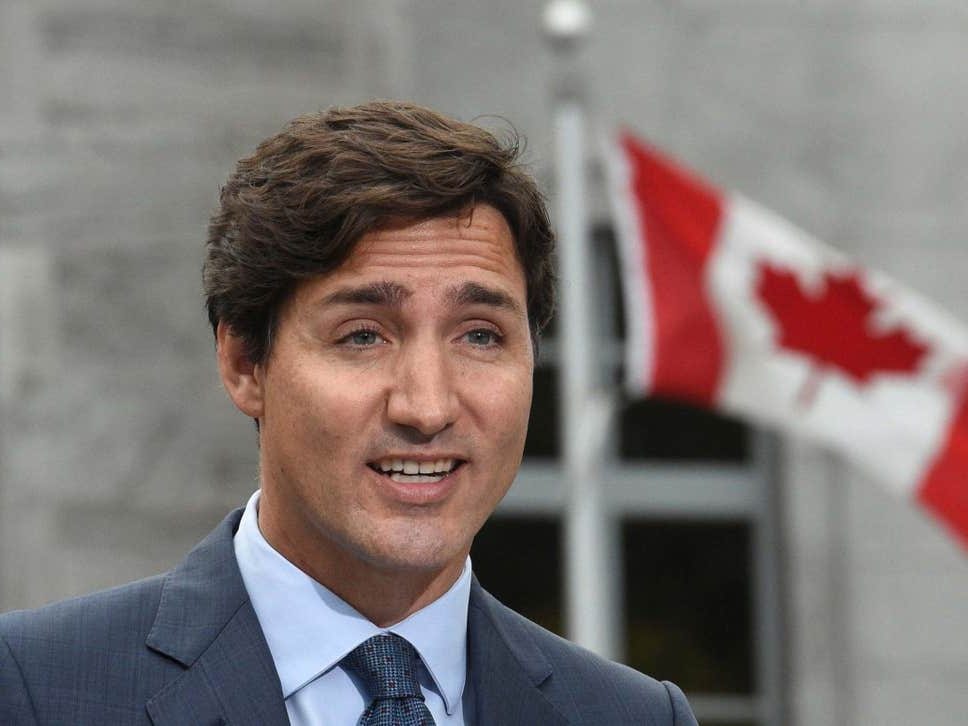Trudeau Declares He Has “Had Enough.”
The Unexpected Resignation of Justin Trudeau: A Political Landscape in Flux
Canadian Prime Minister Justin Trudeau’s abrupt resignation announcement sent shockwaves through the nation’s political landscape. Citing "internal battles" and acknowledging his diminished suitability to lead the Liberal Party into the next election, Trudeau’s decision marks a significant turning point in his political career and for Canada’s future. While he intends to remain in office until a new Liberal leader is chosen, the political ramifications of his departure are already reverberating across the country. The originally scheduled resumption of Parliament on January 27th has been postponed to March 24th to accommodate the leadership race, and opposition parties are preparing for a no-confidence vote, potentially triggering a spring election.
Trudeau’s tenure as prime minister, which began in 2015 after years of Conservative rule, was initially marked by widespread popularity and a wave of liberal reforms. His youthful charisma and progressive agenda resonated with many Canadians, bringing a sense of renewed optimism to the country’s political discourse. However, the honeymoon period eventually waned as his government faced mounting challenges, including rising costs of living, particularly for food and housing, and increased immigration levels, which fueled discontent among certain segments of the population. These factors contributed to a decline in Trudeau’s approval ratings and ultimately created the internal pressures that he cited as contributing to his decision to step down.
Adding to the domestic political turmoil is the looming threat of trade disputes with the United States. U.S. President-elect Donald Trump’s aggressive stance on trade, including threats of tariffs against Canada unless it curtails migration and drug flow, further complicates the already precarious situation. Despite the significantly lower numbers of migrants and drugs crossing the Canadian border compared to the Mexican border, Trump’s rhetoric has created an atmosphere of uncertainty and strained relations between the two neighboring countries. Trudeau’s attempts to negotiate with Trump, including a meeting at Mar-a-Lago in late November 2024, yielded no concrete results, leaving the threat of tariffs hanging over the Canadian economy. Trump’s subsequent provocative remarks, though seemingly made in jest, underscored the tense dynamic between the two leaders and further destabilized the bilateral relationship.
The resignation of Finance Minister Chrystia Freeland in December 2024 further intensified the political crisis. Freeland’s departure, driven by her disapproval of Trudeau’s economic policies, including a sales tax holiday and cash payouts, exposed deep fissures within the Liberal Party and highlighted the growing concerns about the government’s fiscal approach, particularly in light of the potential trade war with the United States. Freeland’s warnings about reckless spending amidst the looming trade threats added another layer of complexity to the already challenging economic outlook.
Despite the mounting pressures and declining popularity, Trudeau had initially planned to seek a fourth term as prime minister. His determination to stay in power despite internal party dissatisfaction and recent election losses in key strongholds like Toronto and Montreal underscored his commitment to his political agenda. However, the combination of internal dissent, economic anxieties, and external threats proved too much to overcome, ultimately leading to his resignation announcement.
Trudeau’s legacy will be complex and multifaceted. His championing of progressive causes, including gender equality, diversity, and the legalization of cannabis, garnered widespread support and marked significant social advancements. However, his approach to balancing environmental protection with economic growth often drew criticism from both sides of the political spectrum. While Canada’s handling of the COVID-19 pandemic was generally viewed as successful, the implementation of vaccine mandates sparked backlash in certain regions, particularly rural areas. His attempts to navigate these complex issues ultimately contributed to the erosion of his political capital. Comparisons to his father, Pierre Trudeau, a legendary figure in Canadian politics known for his immigration reforms and charismatic leadership, inevitably shaped Justin Trudeau’s political trajectory. While he inherited some of his father’s star power, his influence waned over time, culminating in his unexpected resignation. The political landscape in Canada is now poised for a period of significant transition as the Liberal Party embarks on a leadership race and the nation grapples with the challenges ahead.
Share this content:












Post Comment